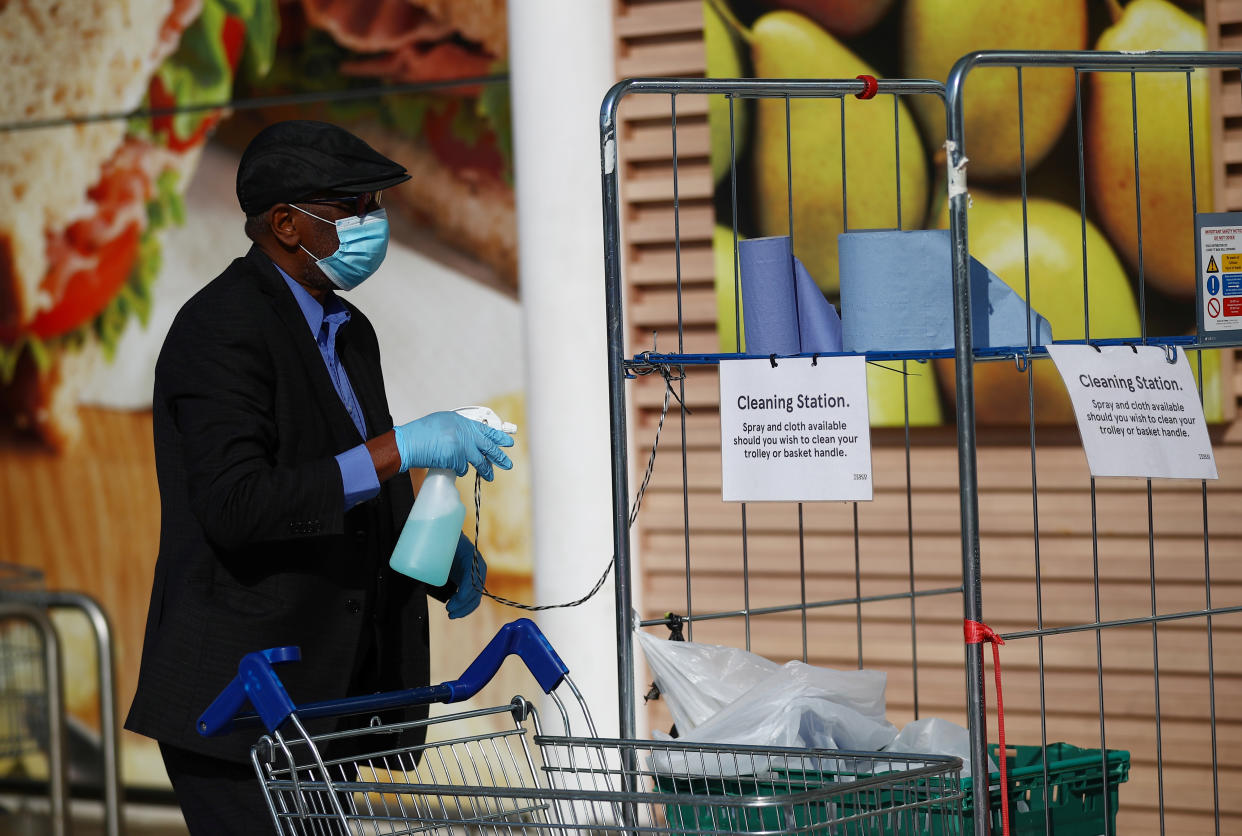Coronavirus: Growth in UK grocery market slows as shoppers ‘ease back to normality’

Growth in the UK grocery market slowed over the past month as the easing of coronavirus restrictions prompted shoppers to move towards normality.
Overall, the sector saw growth of 14.4% during the past twelve weeks, a slight decline on the same figure from July, according to research firm Kantar.
“While things are far from normal, the data shows a gradual softening of the more extreme lockdown trends in the grocery market,” said Charlotte Scott, the consumer insight director at Kantar.
Scott pointed to the fact that the average spend per shopping trip fell below £25 for the first time since March, but noted that it was still “a world away” from the pre-pandemic average of £19 per trip.
“The relaxing of rules across much of the country means shoppers are less inclined to stock up their cupboards with regular large trips,” Scott said.
READ MORE: Marks and Spencer to axe around 7,000 jobs
The latest data also indicates a decline in the number of shopping trips per month. At 14, however, it is still higher than that seen during April and May, when lockdown rules were far more stringent.
Kantar also pointed to a reduction in the number of shopping trips in the week after face coverings became mandatory in shops.
In the week after the government introduced the rule, there were two million fewer trips than would have been expected, suggesting that the public “may need time to adjust to the new regulations.”
Online grocery sales hit a new record in the past four weeks, with 13.5% of all sales now being ordered on the internet.
With its marketshare approaching 2%, Ocado (OCDO.L) is the primary beneficiary of this trend, and saw growth of 45.5% over the past twelve weeks.
READ MORE: EasyJet jobs at risk as bases close and Ryanair axes flights
All grocers nevertheless saw growth during the period. Sales at Iceland climbed by more than 29%, at Co-op by 22.4%, and at Morrison’s (MRW.L) by 16%.
Tesco (TSCO.L) saw growth of 12.8%, Sainsbury’s (SBRY.L) 10.9%, and Asda 9.5%. German discount retailers Lidl and Aldi saw growth of 15.7% and 12.7%, respectively.
“With the country officially entering recession last week, atypical behaviours are likely to continue. During a recession we would generally expect shoppers to manage their spend more carefully,” said Scott.
“Early evidence suggests that most are not yet choosing to trade down, with brands and premium own label lines currently performing well,” she said.
“However, price cuts have increased compared with July as some people look for opportunities to save.”


